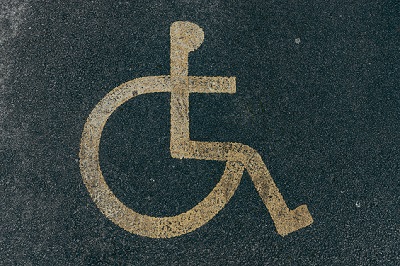Overview
Body deformity is one of the life conditions we can’t help but live with sometimes. Millions of people around the world live with various forms of deformities, which have some psychological effect on them and impact their confidence, especially when interacting with other people without apparent deformity.
If you have some deformity which affects you psychologically and you are struggling to lead a normal life, we have some tips and pragmatic steps you need to follow to improve your outlook on life and indeed your quality of life. Most people who are handicapped are known to lead a reclusive lifestyle, isolating themselves from the world.
Table of Contents
- Overview
- Causes of body deformity
- Associated societal stigma
- Overcoming the stigma of body deformity
- Admonition
Some choose to live in isolation because of past negative experiences or false imagination of what society may think of them. Living in isolation compounds the problem and does no good. Humans are social animals, and interacting with other people is the very essence of life. We were never designed to live in solitude, and no condition should ever push us to live in isolation. Interactions with people, whether individually or in groups, are therapeutic and part of our healing process.
Understandably, some people can be naughty and poke fun at your condition, but that should never be a reason to withdraw from society. There are ways to manage such situations, as you will learn in subsequent sections.
Causes of Body Deformity
Deformity can be congenital or acquired. Many people were born with conditions like clubfoot, Erb’s Palsy, Hydrocephalus, varus and valgus knees and several other types of deformities. These are examples of congenital deformity, which is a type of deformity people are born with. Those who suffer from congenital deformities are not responsible for their conditions.
Acquired body deformity can be self-inflicted or caused by other people. Self-inflicted deformity is usually caused by accidents such as a fall from height or injuries suffered when operating heavy machinery. Other people can also inflict bad injuries on us that may lead to amputation and deformity.
Also, some people still practice archaic cultures and traditions, especially people in some parts of Africa. These people willingly inflict body deformity on themselves as a way of life. They inflict on sorts of cuts on parts of the body as tribal marks. These marks, which are mostly indelible, are usually inscribed on newborns, and when these individuals bear the marks grow up and start interacting with the civilised world; they feel ashamed of their looks and sometimes try to withdraw from society.
Can Body Deformity be corrected?
This is a pertinent question, as many who have some form of body deformity are not aware that their condition can be corrected. Conditions such as varus and valgus deformity can be corrected through a surgical procedure known as corrective osteotomy. Orthopaedic surgeons carry out procedures which are mostly low risk with a high success rate, and patients recover within six months under the auspices of physiotherapists.
Medical interventions have become so advanced that many deformities can be corrected through the use of prosthetic and orthotic devices, however, these devices and interventions can be expensive and out of reach for low-income earners.
Although not all deformities can be corrected, meaning people are left with no other option than to live with these debilitating conditions.
Associated Societal Stigma
People living with body deformity are prone to suffering stigma in society. They are likely to suffer discrimination and all sorts of stigmas depending on the society they find themselves in. If you have a deformity and find yourself in a society with people who are not well educated or informed, you are likely to contend with a lot of stares. These stares and stigmas can affect one psychologically if not well equipped on how to handle the associated societal stigma of body deformity.
Also, read; Holistic Approach to Weight Loss
Also, people with deformity have some structural and stereotypical stigmas to contend with in society, but again, this depends on the society you find yourself in. For instance, some public buildings lack facilities to cater for people with mobility problems, which makes it difficult for the physically challenged to access such buildings easily. This can have a negative effect on such individuals.
The society must do better in mitigating the stigmas against people living with deformities.
Overcoming the stigma of body deformity
To overcome the psychological effect of deformity, you’ve got to take control of things. You must understand the world is not a perfect place, and people won’t always treat you the right way. Our society is made up of people with diverse backgrounds. Some are poorly raised or lack quality education. These individuals may say mean things to other people without taking cognisance of their feelings. Such behaviours are bad and condemnable, but in life, you can’t always control what people say or how they treat you. However, you can control your reactions and relationships with those who are likely to stigmatise or hurt your feelings. The following points would help you overcome the stigma of deformity.
- Be with Loved Ones: If you have a severe deformity and are likely to suffer stigmatisation from others, you are advised to spend much time with your loved ones, such as your family and friends. Being with family and friends is most indicated when going out in public. Spending quality time with loved ones boosts your confidence and makes you think less of your condition.
- Join a Support Group: Depending on the type of deformity, joining a support group, either online or in person, might be helpful. It is a well-established fact that seeing people with similar challenges share their stories is helpful and elevates the mind. When you join a support group, you will learn different coping strategies from people with similar conditions. Support groups have proven to be helpful for people with various challenges.
- Do not withdraw from the Public: Your condition, whether body deformity or any other kind of challenges, is no reason to withdraw from the public. Except when an expert advises otherwise. Withdrawing from the public because of your condition would only compound the psychological effects of your condition. You are encouraged to try as much as possible to lead a normal life, although you need to be selective in your associations and mix with only people who are likely to treat you nicely.
- Develop a Strong Mentality: This point is self-explanatory; you are encouraged to develop a strong mental fortitude and try to lead a normal life. Do not always imagine what people might be saying or thinking about you, especially when you are in public. Set goals, be competitive and try to achieve your set targets.
- Do not live in self-pity: you’ve got to own your emotions. Do not let your emotions get the best of you at all times. Do not create a small cocoon of pity, and try to live there always. Go out and live a normal life. Play deaf to the negative world and try to forge your world. Living in self-pity does no good to anyone. It creates an imaginary chain that prevents you from living your best life.
- Be Grateful for life: Life is beautiful, and we must always show gratitude, regardless of our conditions. Do not allow your body deformity get the best of you. The onus is on you to break the shackles of the negative psychological effects of deformities. Do not allow your condition to make you ungrateful for life. Show gratitude and be conscious of your feelings. Try to be in the company of people who love life and are always happy.
- Don’t expect Everyone to be nice: As stated earlier, our society contain people who are poorly raised. Such people have the tendency to hurt your feelings with words, gestures or actions. You must learn to deal with such negative situations. Do not allow your feelings to get the best of you. Try to be calm in negative circumstances and remove yourself from such scenes. People may not always treat you nicely, but how you react and feel afterwards depends on you.
Admonition
If you have some kind of deformity, you are advised to remember the points raised above on how to handle negative situations. Remember that people won’t always be nice and understanding towards you. However, how you feel about yourself greatly depends on you.
Also, we encourage people without apparent deformity to be nice towards others



